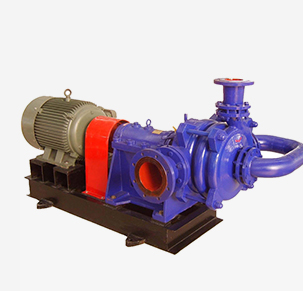Haitian Creole
- Afrikaans
- Albanian
- Amharic
- Arabic
- Armenian
- Azerbaijani
- Basque
- Belarusian
- Bengali
- Bosnian
- Bulgarian
- Catalan
- Cebuano
- Corsican
- Croatian
- Czech
- Danish
- Dutch
- English
- Esperanto
- Estonian
- Finnish
- French
- Frisian
- Galician
- Georgian
- German
- Greek
- Gujarati
- Haitian Creole
- hausa
- hawaiian
- Hebrew
- Hindi
- Miao
- Hungarian
- Icelandic
- igbo
- Indonesian
- irish
- Italian
- Japanese
- Javanese
- Kannada
- kazakh
- Khmer
- Rwandese
- Korean
- Kurdish
- Kyrgyz
- Lao
- Latin
- Latvian
- Lithuanian
- Luxembourgish
- Macedonian
- Malgashi
- Malay
- Malayalam
- Maltese
- Maori
- Marathi
- Mongolian
- Myanmar
- Nepali
- Norwegian
- Norwegian
- Occitan
- Pashto
- Persian
- Polish
- Portuguese
- Punjabi
- Romanian
- Russian
- Samoan
- Scottish Gaelic
- Serbian
- Sesotho
- Shona
- Sindhi
- Sinhala
- Slovak
- Slovenian
- Somali
- Spanish
- Sundanese
- Swahili
- Swedish
- Tagalog
- Tajik
- Tamil
- Tatar
- Telugu
- Thai
- Turkish
- Turkmen
- Ukrainian
- Urdu
- Uighur
- Uzbek
- Vietnamese
- Welsh
- Bantu
- Yiddish
- Yoruba
- Zulu
Telephone: +86 13120555503
Email: frank@cypump.com
Oct . 18, 2024 14:21 Back to list
Efficient Solutions for Handling Metal Slurry Pumping Applications in Industrial Settings
Understanding Metal Slurry Pumps Importance and Applications
Metal slurry pumps are essential devices used in various industries to handle and transport mixtures of solid particles and liquids. These pumps are specifically designed to handle abrasive and viscous materials, such as sludge, slurries, and slurries containing metals, which can cause wear and tear on conventional pumps. Understanding the importance and functionality of metal slurry pumps is crucial for industries such as mining, mineral processing, and wastewater treatment, where the effective movement of materials is vital.
Working Principle
At its core, a metal slurry pump operates on the principle of converting mechanical energy into hydraulic energy. The pump consists of an impeller, which is a rotating component that imparts velocity to the slurry. As the impeller spins, it generates a centrifugal force that pushes the mixture through the pump casing and into the discharge pipe. The design of metal slurry pumps typically incorporates wear-resistant materials, enabling them to manage the erosive nature of the solid particles they handle.
Key Features
Metal slurry pumps come equipped with several critical features that enhance their performance and durability. First and foremost, the construction material is pivotal; typically, these pumps are made from metal alloys that resist wear and corrosion. Common materials include high chrome, stainless steel, and other specialized alloys designed for harsh environments.
Another essential feature is the design of the impeller and volute. Most metal slurry pumps utilize a robust impeller design that minimizes the chance of clogging while maximizing efficiency. Additionally, some pumps offer adjustable impeller clearance, allowing operators to fine-tune the pump’s performance based on the specific properties of the slurry being transported.
Applications Across Industries
metal slurry pump

The applications of metal slurry pumps are broad and varied. In the mining industry, these pumps are indispensable for transporting mineral slurries from extraction sites to processing plants. The ability to handle high solids concentrations makes them ideal for mineral recovery processes, particularly in gold, copper, and coal mining operations.
In mineral processing, metal slurry pumps are used for various tasks, including ore transportation, tailings disposal, and concentrate handling. The reliability of these pumps is crucial, as any failure could lead to production downtime and increased operational costs.
Wastewater treatment facilities also utilize metal slurry pumps for moving sludge and other solid waste materials. The robust design of these pumps ensures that they can handle the abrasive nature of the waste without compromising their functionality or longevity.
Maintenance Considerations
The efficiency and lifespan of metal slurry pumps can be significantly affected by maintenance practices. Regular inspection and maintenance routines are essential to identify and address potential wear issues before they escalate. Components such as impellers, liners, and casing should be checked for wear and replaced as necessary to prevent costly failures.
Additionally, proper sealing and lubrication are critical to ensure optimal pump performance. Operators should be trained in the specific requirements of their slurry pump systems to maintain their reliability and efficiency over time.
Conclusion
In summary, metal slurry pumps play a vital role in numerous industries, especially where the transportation of abrasive and viscous materials is concerned. Their unique design features and durable construction make them well-suited to handle the demanding conditions often present in mining, mineral processing, and wastewater management. By understanding the workings, applications, and maintenance of these pumps, industries can ensure efficient operations and reduce the risk of unexpected failures, ultimately leading to enhanced productivity and profitability.
-
ISG Series Vertical Pipeline Pump - Chi Yuan Pumps Co., LTD.|Energy Efficiency, Corrosion Resistance
NewsAug.03,2025
-
ISG Series Pipeline Pump - Chi Yuan Pumps | Energy Efficiency&Compact Design
NewsAug.03,2025
-
ISG Series Vertical Pipeline Pump - Chi Yuan Pumps Co., LTD.|High Efficiency, Low Noise, Durable
NewsAug.02,2025
-
ISG Series Vertical Pipeline Pump - Chi Yuan Pumps | High Efficiency, Low Noise
NewsAug.02,2025
-
ISG Series Vertical Pipeline Pump- Chi Yuan Pumps Co., LTD.|High Efficiency&Compact Design
NewsAug.02,2025
-
Heavy-Duty Mining Sludge Pumps - Wear-Resistant Slurry Handling
NewsAug.02,2025










